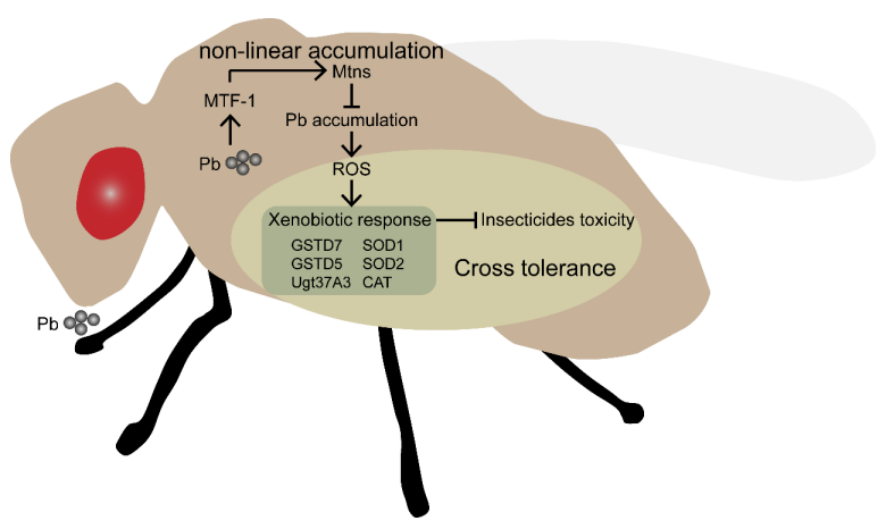Heavy metal pollution has become a significant global environmental issue, with lead being one of the primary contaminants. Lead pollution primarily originates from human activities, particularly mining, manufacturing, and the combustion of fossil fuels, which releases lead into the environment and ultimately poses risks to human health. However, issues such as long-term exposure to lead and other heavy metals and their impact on insect physiology and ecological effects have received limited research attention.
In light of this, Dr. Wang Yiwen's research team conducted an in-depth analysis of the genetic responses and physiological changes in fruit flies (Drosophila melanogaster) under different levels of lead exposure with various methods, including transcriptomic analysis and ICP-MS. The research findings revealed that as the lead content in their diet exceeded a specific threshold, the accumulation of lead within Drosophila melanogaster displayed a non-linear pattern, with an unexpected decrease. Metallothionein B (MtnB) played a crucial role in this process, directly influencing lead accumulation and excretion, thus giving rise to this non-linear accumulation pattern. The study also unveiled the involvement of Metal-Regulatory Transcription Factor 1 (MTF-1) in the regulation of lead-induced high expression of metallothioneins.
Furthermore, the interplay between metal metabolic pathways and exogenous response pathways resulted in a cross-tolerance of lead-exposed Drosophila melanogaster towards insecticides and other organic toxins.Lead poisoning-induced oxidative stress may serve as a bridge connecting detoxification responses to both inorganic and organic harmful substances within the organism.These findings shed light on a novel mechanism through which environmental heavy metal pollution affects agricultural ecosystems.
The research findings have been published in the journal "Science of the Total Environment" with the title "Pb exposure causes non-linear accumulation of Pb in D. melanogaster controlled by metallothionein B and exerts ecological effects." The first authors of this paper are Master's students from the School of Pharmaceutical Science and Technology of Tianjin University, Yu Xiaoyu, Li Ying, Tian Xiaohan and Zang Xiya. Dr. Wang Yiwen is the corresponding author. This research received substantial support and assistance from the faculty at the School of Pharmaceutical Science and Technology's Analytical Center and Tianjin Boom Science Technology Co., Ltd.


